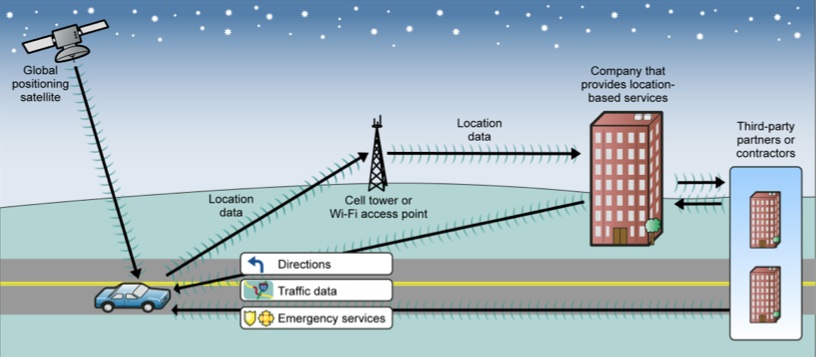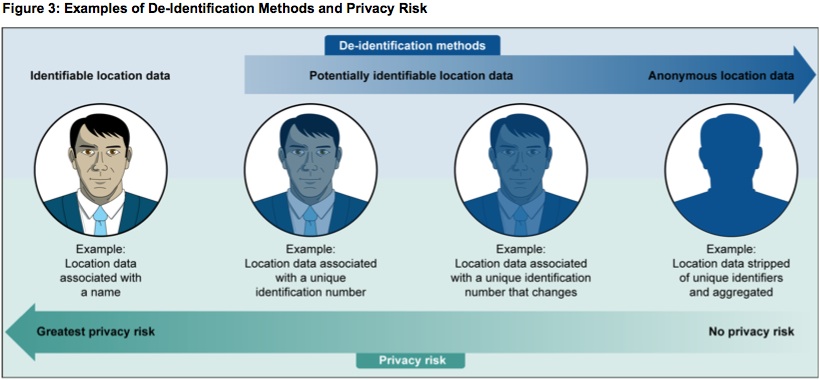

United States Government Accountability Office (PDF):
Representatives from all 10 selected companies–auto manufacturers, portable navigation device (PND) companies, and developers of map and navigation applications for mobile devices–said they collect location data to provide consumers with location-based services. For example, companies collect location data to provide turn-by-turn directions. Nine companies share location data with third-party companies, such as traffic information providers, to provide services to consumers. Representatives from two companies said they share data where personally identifiable information has been removed (de-identified data) for purposes beyond providing services (e.g., for research), although such purposes are not always disclosed to consumers. All company representatives said that they do not share personally identifiable location data with or sell such data to marketing companies or data brokers.
All 10 selected companies have taken steps consistent with some, but not all, industry-recommended privacy practices. In addition, the companies’ privacy practices were, in certain instances, unclear, which could make it difficult for consumers to understand the privacy risks that may exist.
Disclosures : Consistent with recommended practices, all selected companies disclose that they collect and share location data. However, inconsistent with recommended practices, nine companies’ disclosures provide reasons for collecting data that are broadly worded (e.g., the stated reasons for collecting location data were not exhaustive), and five companies’ disclosures do not describe the purposes for sharing de-identified location data. Without clear disclosures, risks increase that data may be collected or shared for purposes that the consumer is not expecting or might not have agreed to.
Consent and controls: Consistent with recommended practices, all selected companies obtain consumer consent to collect location data and obtain this consent in various ways. In addition, all companies offered consumers some controls over location data collection. However, if companies retained data, they did not allow consumers to request that their data be deleted, which is a recommended practice. Without the ability to delete data, consumers are unable to prevent the use or retention of their data, should they wish to do so.
Safeguards and retention: All selected companies take steps to safeguard location data–a recommended practice–but use different de-identification methods that affect the extent to which consumers may be re-identified and exposed to privacy risks. Also, there is wide variation in how long companies retain vehicle-specific or personally identifiable location data. To the extent that a company’s de-identification methods allow a consumer to be identified or that identifiable data are retained, risks increase that location data may be used in ways consumers did not intend or may be vulnerable to unauthorized access.
Accountability: All selected companies disclose to consumers or take steps to protect location data that they share with third parties; such efforts are consistent with recommended practices. However, inconsistent with recommended practices, none of the selected companies disclose to consumers how they hold themselves and their employees accountable. The companies told GAO that internal company policies serve this function.